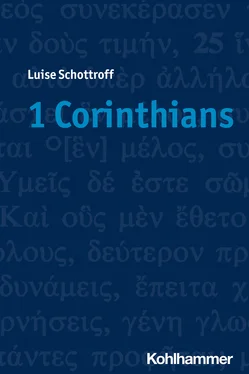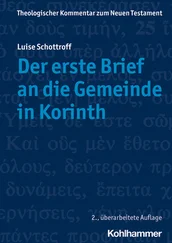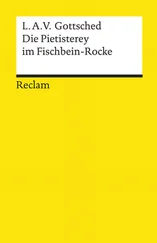The body of the Messiah, Jesus’ body, and people’s individual bodies are where God is present (11:23; 12:12, 27; 6:19). In the Lord’s Supper, these diverse dimensions of the concept »body of Christ« ( sōma christou ) are inseparably connected. The Lord’s Supper is the place where the bodily presence of God and of the Messiah is constantly being actualized anew.
3. Paul among his Brothers and Sisters
Paul understands himself as an interpreter of the Torah in community. Even the people from the nations quickly became very competent in knowing and interpreting the Torah for their life in the body of Christ. Paul participated in these interpretative communities.But he is not accorded a place of privilege (see 5:3–5) when the gathering reaches decisions based on the Torah.
Paul was not the only messenger God sent to proclaim the liberating gospel. Most of his letters were written together with others (see 1:1), and they contain a great deal that emanates from the language of the congregations, their prayers and discussions. Paul did not »have co-workers,« whom he directed, but worked together with other brothers and sisters on behalf of the gospel (16:1–24). In the body of Christ there are to be no top-down relationships. In the history of interpretation, Paul is frequently understood as a figure who has authority over others, one who authoritatively renders a verdict about doctrinal differences and »admonishes« the congregation (see 1:10). This interpretation of Paul has made a lasting impression on his image, even by means of the words chosen in translations of the Bible. In this way he became the role model for leaders who claimed authority in the church. At the same time, however, this Paul also spread fear and abhorrence among those who suffered under hierarchies and worked for just relationships in the church.
Women in the congregations had equal worth for Paul as workers for the gospel. But when the issue is women and their sexuality and their relationships to the opposite sex, his ambivalence toward them becomes apparent. He certainly doesn’t want messianic men to go to prostitutes. But in this context, the prostitutes themselves remain for him practically invisible. And it remains invisible that a relevant portion of the congregations is made up of women who had to earn their living, entirely or in part, through prostitution. For the reception of Paul in the 21 stcentury, a rediscovery of Paul the brother should be accompanied by the open discussion about his ambivalence on particular issues. Paul also spread ideas that in the history of the church, and in the societies influenced by the church, have oppressed and tormented women and men. That is true especially of those who live as homosexuals (6:9) and for women in patriarchal marriages (7:10, 36). Paul’s oppressive side has been strengthened even more through the history of interpretation. Criticism of Paul should be discussed in twentieth-century congregations, even during the worship services.
4. Everyday Life in the Cities of the Roman Empire
Paul speaks relatively often about the conditions under which he lives. He must work hard to support himself. Above all, he is exposed to dangers (4:12; 16:5–9) as he travels on foot through the expanses of the lands north of the Mediterranean Sea. He is, moreover, constantly in political danger. As a foreigner, he needs protection in the cities. Roman authorities in the cities, in part their inhabitants as well, are quite ready to persecute, beat, imprison and threaten with death (4:11–13) proclaimers of God’s peace, which is fundamentally different from the peace offered by the pax Romana .
The living conditions of most of the peoplein the cities become incredibly clear through many details in this letter. Paul speaks of poverty and a lack of education (1:26–31). He criticizes the rhetoric used in public gatherings (2:1–5) and probably the thrashing of children in the schools (4:21). He speaks knowledgably about architecture (3:9–17), about the competence of the courts and about the linguistic diversity of the cities and their problems (14). Many aspects of city life in antiquity can be found in this letter. Shocking in all this is the role violence plays in daily life, above all the role it plays in mass gatherings (4:9–13) and in the lives of slaves (7:21–24).
This letter is written to give the brothers and sisters courage—through an interpretation of the Torah that applies it to their daily lives and through praise for the God of Israel. The first chapters of the letter show how difficult it is for members of the congregation to extricate themselves from their own complicities and embroilments, from competitive behavior and well-worn patterns of subordination under diverse masters and from the non-exceptionality of violence in sexual relationships. Even at the Lord’s Supper some still try to take advantage of the privileges to which they have grown accustomed. The balancing act between the city’s official cults that chapters 8–10 bring to light is striking. Then, from chapter 12 on, Paul speaks less often about the difficulties in daily life, but above all about the riches with which Israel’s God has gifted the oppressed nations in this situation. They should be assured that God has put an end to the structures of death by raising Jesus from the dead. They can enjoy new gifts, the competence to interpret the Torah, the ability to heal the sick and to speak in the assembly. All of these are gifts that God’s Spirit awakens and cultivates.
God’s Spirit, the holy Spirit, dwells in the bodies of those who belong to God (6:19). Paul speaks in the plural when he speaks of experiences with God’s Spirit: »We« all, the whole congregation, are able to put into words wisdom that God reveals, indeed, even to speak of it publicly (2:6–10). But »we,« the congregation, also speak the language of angels (13:1; 2:6–16) and search out the hidden depths of God. The language with which Paul speaks about the divine Spirit is boundless (»all,« 13:7, for example) and enthusiastic. Paul describes in a similar way his own experiences of God (15:8–10; 2 Cor 12:2–5). But he does not restrict these ecstatic experiences of God, which change one’s whole life, to himself or to a small group of people. Pauline mysticism is a democratic mysticism (13:1–13).
The messianic community in Corinth consists predominately of a few who are educated, of those whose work is hard and of people damaged by violence. What a contrast between this superabundant trust in God and their everyday reality! Their experience of God, the certainty that God’s Spirit dwells within them, was their source of strength. Paul didn’t bring them a new »teaching.« He and other men and women taught them to search for God in the Torah and in their lives and to draw strength from this source.
The First Letter to Corinth is an arduous read if it is undertaken in search of opponents, strife and doctrinal controversies. The letter looks very different if one listens to, and takes seriously from the start, the language of delight and happiness over their great riches. 1:4–9 is not a stereotypical thanksgiving one finds at this place in letters, but a prayer of praise transformed into an address to the brothers and sisters. You are not lacking in any gift! (1:7). Is that polite exaggeration, a linguistic tactic? It would be a shame to read in this way, for the riches would remain undiscovered. Already this first section of the letter is pervaded by words that express fullness, indeed boundlessness: you are rich—in every respect (1:5), in everything. This language permeates the letter. It is worthwhile to undertake your own search for traces of the mystic Paul, of the women and men mystics in Corinth, of a messianic group in this harbor city in Greece in the middle of the first century.
Читать дальше












